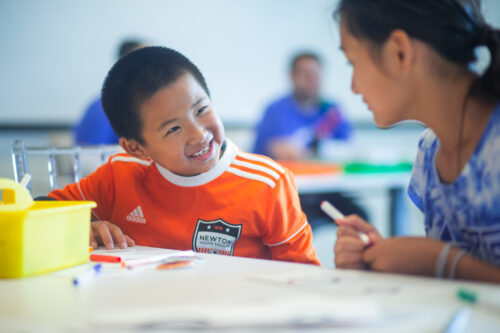Image courtesy of Emki Production.
How much do you think you can learn in a year’s time? At the Cognition and Development Lab at Yale, researchers compared children’s and adults’ attitudes toward how much knowledge they believed one could acquire in one year. The research was driven by previous findings showing that children are more optimistic than adults when it comes to knowledge acquisition attitudes. Research scientist Kristi Lockhart sought to see if shortened time frames, methods of learning, or types of knowledge affected this attitude. Who was more optimistic?
Apparently, children. “Even though they made a distinction of what they could learn [with different methods of learning] if you look at some of their scores, they are still above average [compared to] the adults,” Lockhart said.
But this optimism is not without its limits. Children ages five to seven still believe two-year-olds are unable to learn anything, making a bigger distinction between themselves and the two-year-olds than themselves and adults. Additionally, they distinguish themselves specifically, displaying a self-enhancement effect; in other words, each child believes they will be able to learn more than their peers.
But the question remains: why are the children so optimistic? Lockhart has a few theories. First, this optimism may be necessary to keep children motivated in schools. It may not be unfounded, as adults routinely underestimate how much children can learn. Conversely, children may maintain this level of optimism because they don’t yet have the metacognitive skills to consider the effort required by knowledge acquisition. In early life, children seem to learn without consciously exerting effort, potentially causing them to view knowledge acquisition as easy.

